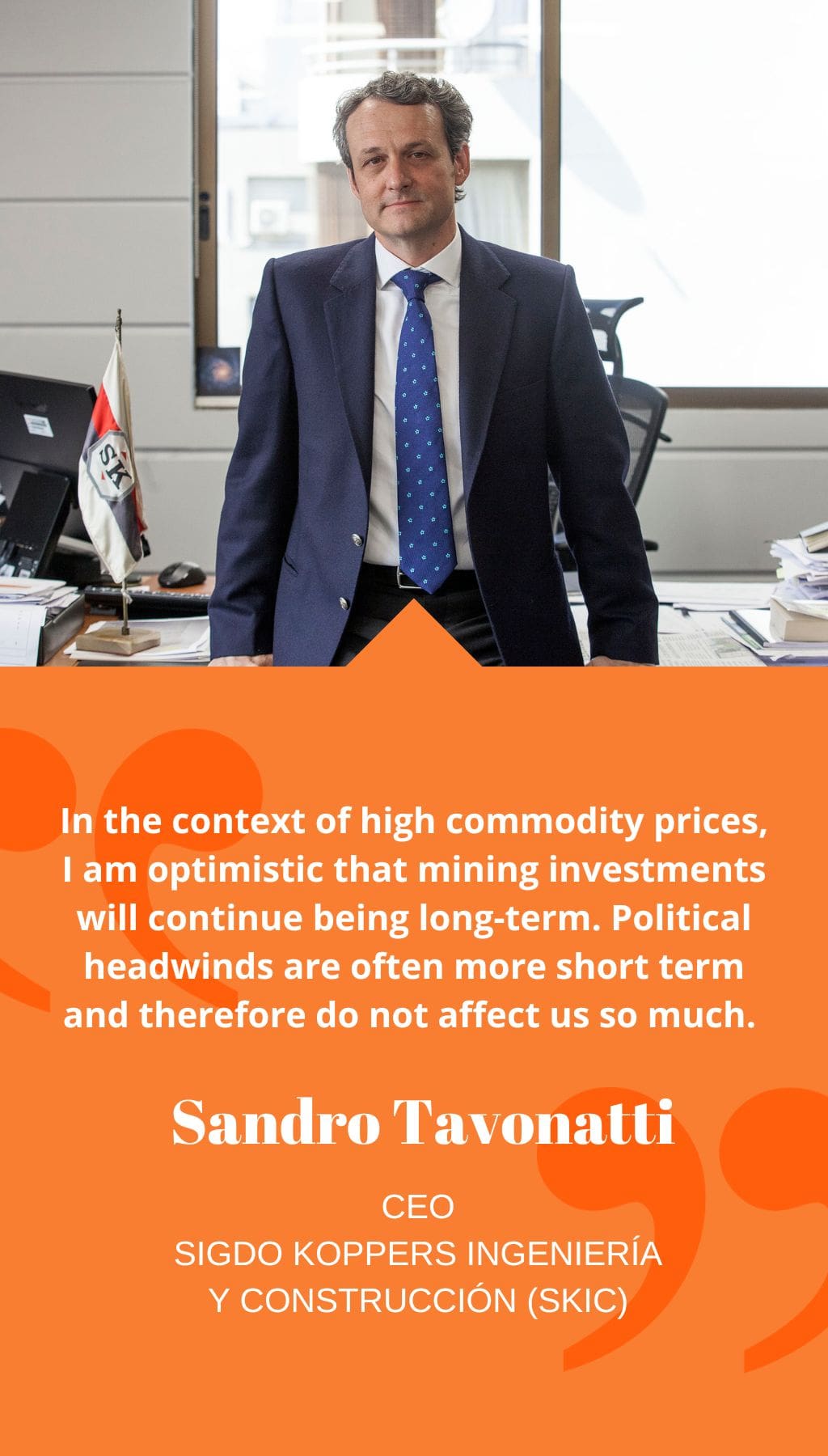
- Chile | 27 March 2022

How has SKIC evolved in recent years to expand the scope of its business?
SKIC has evolved from an industrial assembly and construction company into an EPC (engineering, procurement, and construction) company over the last four years. This change is due to the fact that our clients prefer to focus on their core business and leave the day-to-day engineering, procurement, and construction to contractors. For instance, we have been developing our work in maritime ports and are proud to have important offshore projects with Collahuasi and Teck.
What have been some of the technical challenges working on large-scale projects such as QB2?
One of the biggest challenges we have faced is overcoming the lack of a qualified workforce, especially considering the altitude of projects like Teck’s QB2 and Gold Fields’ Salares Norte. Underground mines like Andina and Chuquicamata for Codelco also pose challenges. Besides logistics and health support for all workers, innovation is necessary because there are limitations in terms of capacity and social distancing at projects. It means you have to think outside the box, developing projects with less people and more technology.
Could you give examples of new technologies that are improving productivity and safety at mine sites?
We have been working on the development of robotics and AI to expedite diagnostics and analysis and reduce the exposure of people to risks. For instance, we have made an alliance with Boston Dynamics and incorporated their Spot dog robots in our operations. Introducing new technology is not only an incentive for new generations, but also good for clients because it forces all parties to work hand in hand to make processes more productive.
Can you elaborate on SKIC’s collaborative approach with engineering and service companies?
Our decision to evolve into an EPC company immediately forced us to create alliances. We work with Fluor Canada, Worley Parsons, Bechtel, and a number of smaller specialist companies, from the proposal study stage. Beyond the technical issues, the first thing we evaluate is that we share the same values and can merge culturally. We have been doing it for several years, and it is now bearing fruit.
How is the issue of water supply impacting the mining sector?
The water issue has affected all of Chile. We have set the company to work early on every project for desalination and water pipes, and SKIC has worked on both the engineering and execution of several desalination projects. The extremes that we are facing have forced the mining sector to invest all of its know-how because to tackle a crisis like this, we have to think not just as a company but as an industry.
What is your outlook for brownfield and greenfield mining development in Chile?
In the context of high commodity prices, I am optimistic that mining investments will continue being long-term. Political headwinds are often more short term and therefore do not affect us so much. A number of projects have had studies fast-tracked, and there is a lot of brownfield work to adapt production processes to more sustainable methods, which is a trend we see continuing. The role of mining to produce the metals and minerals needed for sustainable energy will create a virtuous cycle, which is particularly relevant in countries such as Chile and Peru.














